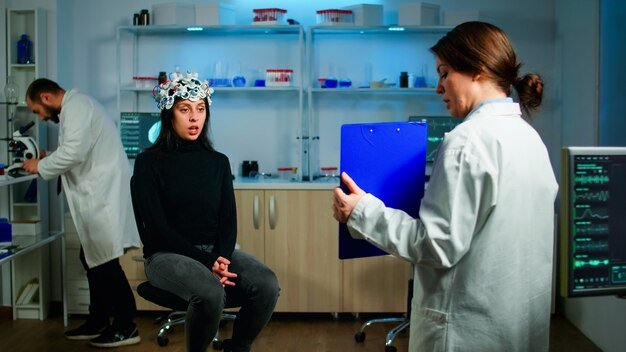Neurological diseases affect millions of people worldwide, impacting the brain, spinal cord, and nerves that control essential functions like movement, speech, and cognition. At DoctorHub360.com, we aim to provide comprehensive insights into these conditions, raising awareness and offering guidance on managing and treating neurological disorders. In this article, we explore the types, causes, symptoms, and treatments of neurological diseases, along with how DoctorHub360.com can assist you in navigating these challenges.
What Are Neurological Diseases?
Neurological diseases refer to disorders that affect the nervous system, including the brain, spinal cord, and peripheral nerves. These conditions vary widely in their severity and symptoms, ranging from mild headaches to life-altering disorders like Alzheimer’s disease or Parkinson’s disease. They can result from genetic predispositions, infections, trauma, or unknown causes.
Common Neurological Diseases
1. Alzheimer’s Disease
Alzheimer’s is a progressive neurodegenerative disorder that primarily affects memory and cognitive abilities. It is the leading cause of dementia in older adults.
- Symptoms: Memory loss, confusion, difficulty in decision-making, and behavioral changes.
- Treatment: While there is no cure, medications like cholinesterase inhibitors can manage symptoms.
2. Parkinson’s Disease
Parkinson’s disease is a degenerative disorder that affects movement control due to a decrease in dopamine production in the brain.
- Symptoms: Tremors, stiffness, slowed movement, and balance problems.
- Treatment: Medications such as levodopa and deep brain stimulation (DBS) are effective in managing symptoms.
3. Epilepsy
Epilepsy is a neurological condition characterized by recurrent seizures caused by abnormal electrical activity in the brain.
- Symptoms: Sudden convulsions, loss of consciousness, and sensory disturbances.
- Treatment: Antiepileptic drugs (AEDs) and in some cases, surgical intervention.
4. Multiple Sclerosis (MS)
MS is an autoimmune disease that damages the protective sheath (myelin) covering nerve fibers, leading to communication problems between the brain and the body.
- Symptoms: Fatigue, vision problems, muscle weakness, and coordination issues.
- Treatment: Immunosuppressive therapies, physical therapy, and symptomatic
- management.
5. Stroke
A stroke occurs when the blood supply to the brain is interrupted, leading to brain damage.
- Symptoms: Sudden weakness, facial drooping, slurred speech, and paralysis.
- Treatment: Immediate medical intervention with clot-busting drugs or surgical procedures is crucial.
6. Migraine
Migraine is a common neurological condition that causes intense headaches, often accompanied by nausea and sensitivity to light.
- Symptoms: Severe headaches, visual disturbances, and vomiting.
- Treatment: Lifestyle changes, preventive medications, and pain relief drugs.
Causes of Neurological Diseases
Neurological disorders can stem from various causes, including:
- Genetic Factors: Inherited conditions like Huntington’s disease or muscular dystrophy.
- Infections: Viruses like meningitis, encephalitis, or prion diseases.
- Trauma: Brain or spinal cord injuries due to accidents or falls.
- Environmental Factors: Exposure to toxins, pollutants, or prolonged stress.
- Lifestyle Factors: Poor diet, lack of exercise, or substance abuse.
- Age-Related Degeneration: Conditions like Alzheimer’s and Parkinson’s are more common in older adults.
Symptoms of Neurological Diseases
The symptoms of neurological diseases can vary depending on the specific condition. Common signs to watch out for include:
- Persistent headaches or migraines.
- Muscle weakness or paralysis.
- Loss of sensation or tingling in extremities.
- Memory loss or confusion.
- Speech or language difficulties.
- Seizures or convulsions.
- Loss of coordination or balance.
- Changes in mood or behavior.
If you or someone you know exhibits any of these symptoms, seeking medical attention promptly is essential.
Diagnosing Neurological Diseases
Accurate diagnosis is crucial for effective treatment. DoctorHub360.com highlights the following diagnostic methods:
- Neurological Examination: Testing reflexes, muscle strength, and sensory responses.
- Imaging Tests: MRI, CT scans, and PET scans to visualize the brain and spinal cord.
- Electrodiagnostic Tests: EEG for brain activity and EMG for muscle response.
- Blood Tests: To identify infections, toxins, or genetic markers.
- Lumbar Puncture: To analyze cerebrospinal fluid for signs of disease.
Treatment Options for Neurological Diseases
Treatments for neurological disorders focus on managing symptoms, slowing progression, and improving quality of life. Common approaches include:
- Medications: Drugs to control symptoms, prevent seizures, or reduce inflammation.
- Surgery: Procedures like deep brain stimulation or removing tumors.
- Physical Therapy: To restore mobility and muscle strength.
- Lifestyle Changes: Diet, exercise, and stress management play a significant role.
- Psychological Support: Counseling and therapy for mental health challenges related to neurological conditions.
How DoctorHub360.com Can Help
DoctorHub360.com is your trusted resource for information and support regarding neurological diseases. Here’s how we can assist:
- Comprehensive Resources: Detailed guides on various neurological disorders, symptoms, and treatments.
- Telehealth Services: Connect with neurologists for consultations and follow-ups.
- Symptom Checker: An online tool to identify potential conditions based on symptoms.
- Community Forums: Join discussions with others experiencing similar challenges.
- Educational Webinars: Stay informed with expert-led sessions on neurological health.
By offering reliable information and easy access to medical professionals, DoctorHub360.com ensures you get the support you need for managing neurological diseases effectively.
Preventing Neurological Diseases
While not all neurological diseases are preventable, adopting a healthy lifestyle can reduce your risk. Consider these tips:
- Exercise Regularly: Promotes brain health and improves circulation.
- Maintain a Balanced Diet: Incorporate omega-3 fatty acids, antioxidants, and whole grains.
- Stay Mentally Active: Engage in puzzles, reading, and learning new skills.
- Manage Stress: Practice mindfulness, yoga, or meditation.
- Avoid Substance Abuse: Limit alcohol and avoid smoking.
- Seek Regular Check-Ups: Early detection can prevent complications.
Final Thoughts
Neurological diseases can significantly impact an individual’s life, but with the right knowledge, diagnosis, and treatment, they can be managed effectively. At DoctorHub360.com, we are committed to empowering individuals with the tools and resources needed to tackle these challenges head-on. Whether you’re seeking expert advice, community support, or up-to-date information, we’re here to guide you every step of the way.
Take control of your neurological health today by visiting DoctorHub360.com. Together, we can navigate the complexities of neurological diseases and improve your quality of life.









